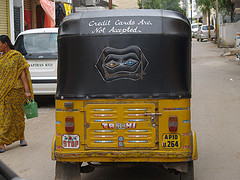
Michael Nielsen is a good friend as well as being an inspiration to many of us in the Open Science community. I’ve been privileged to watch and in a small way to contribute to the development of his arguments over the years and I found the distillation of these years of effort into the talk that he recently gave at TEDxWaterloo entirely successful.


